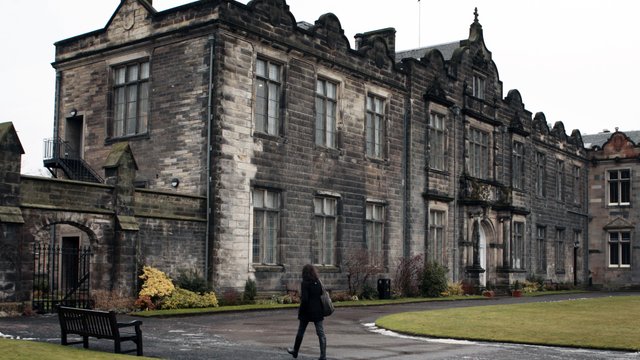On Air Now
Capital Breakfast with Fat Brestovci & Amy Meisak 6am - 10am
8 June 2017, 08:33 | Updated: 8 June 2017, 08:36

UK universities are slipping further down an international league table.
A total of 76 UK institutions are included in the QS World University Rankings 2018, with 51 dropping down the list.
The falls are more likely to be related to a squeeze on university resources, and increasing competition from other parts of the world, rather than the impact of Brexit, it was suggested.
The table, which includes 959 institutions worldwide, does show that the UK is still home to four of the world's 10 best universities.
Cambridge University is the top-rated UK university, taking fifth place, compared with fourth last year.
Oxford is in sixth place, the same spot it occupied last year, while University College London (UCL) is seventh, the same as last year, and Imperial College London is eighth, up from ninth a year ago.
Topping the table again this year is Massachusetts Institute of Technology (MIT) in the United States, followed by three other US institutions - Stanford (2nd), Harvard (3rd) and the California Institute of Technology (Caltech) in fourth.
Overall, 16 of the 24 Russell Group universities, considered among the best in the country, have moved downwards.
The rankings assess university performance in four areas - research, teaching, employability and internationalisation.
Ben Sowter, Head of Research at QS, said: "Though the temptation may be to attribute the UK's second year of struggle to Brexit, we would warn against doing so. Much of the data we collect for these tables has been collected over a five-year period, and the first year of post-Brexit internationalisation scores suggests that there has, thus far, been a minimal impact on international student and faculty rates at UK institutions.
"Of greater importance, we believe, is the continued strain on university resources, which appears to be having a deleterious impact on not just research, but also the capacity to deliver world-class teaching. Also of greater significance than Brexit is the simple and unavoidable truth that these rankings are a relative exercise, and the rest of the world is becoming increasingly competitive.''
Dr Tim Bradshaw, acting director of the Russell Group, said: "The UK remains a world-leader in higher education and Russell Group universities have been fundamental to this success. Our members continue to deliver an excellent teaching and learning experience for students. By this ranking, four of the top 10 universities in the world are Russell Group institutions.
"Of course, there is always room for improvement and maintaining our global position in teaching, research and innovation requires investment. For a number of years, funding for teaching has been squeezed. The position is particularly acute in engineering and some of the sciences where the need for specialist facilities, equipment and technical support adds to the cost of teaching.
"This is something that the new government will have to look at closely if universities are to deliver the jobs and growth that we all want to see for the UK.''
Here is the list of UK universities to make it into the top 200 of the QS World University Rankings 2018.
Positions for last year are given in brackets and "=" is used to denote a joint place.
:: Cambridge 5 (4)
:: Oxford 6 (6)
:: University College London 7 (7)
:: Imperial College London 8 (9)
:: King's College London 23= (21)
:: Edinburgh 23= (19)
:: Manchester 34 (29)
:: London School of Economics and Political Science 35 (37=)
:: Bristol 44 (41)
:: Warwick 57 (51=)
:: Glasgow 65 (63=)
:: Durham 78= (74)
:: Sheffield 82= (84)
:: Nottingham 84= (75=)
:: Birmingham 84= (82)
:: St Andrews 92 (77)
:: Leeds 101 (93)
:: Southampton 102= (87)
:: Queen Mary, University of London 127 (123=)
:: Lancaster 135= (129)
:: York 135= (127)
:: Cardiff 137= (140)
:: Aberdeen 158= (141=)
:: Exeter 158= (164=)
:: Bath 160 (159)
:: Newcastle 161= (168)
:: Liverpool 173= (157)
:: Reading 188= (175)